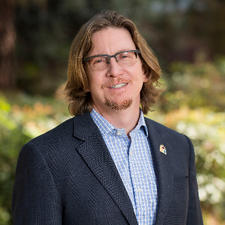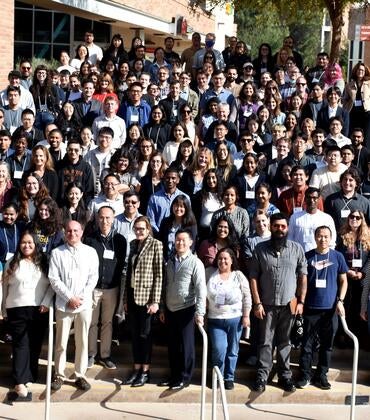Thomas Smith, a professor in the School of Education and a research lead with the California Teacher Education Research and Improvement Network, or CTERIN, presented a policy brief to California State Legislature staff about ways to diversify California’s teacher workforce.
To address the credential to classroom pipeline, CTERIN combined several years of data from multiple state and national sources to create the most comprehensive teacher-level statewide system to date. With this data, CTERIN researchers are investigating questions that examine relationships between teacher demographics, student demographics, preparation pathways, teacher attrition/retention, and the characteristics of schools where new teachers teach.
The briefing posed policy implications regarding California’s educator preparation pathways, the use of waivers and emergency credentials, and for the diversification and expansion of California’s teaching force.
Specifically, Smith told the legislature that new teachers in CTERIN’s sample who identified as Black or Hispanic entered the classroom as a teacher of record through more challenging licensure routes than their counterparts. For example, they were more likely than other new teachers to begin teaching on a permit, such as a waiver/emergency permit, or as an intern.
These two pathways also showed lower retention rates. Less than 40% of new teachers who began their career with a waiver/ emergency permit went on to become fully prepared, and more than 40% of these individuals left the profession altogether by the end of Year 3. New Black and Hispanic teachers were also more likely to teach higher proportions of students who matched their own race.
“Teachers on waivers or emergency credentials are not required to have a mentor or any other supports during their time teaching, even though they are the ones that are most likely to have the greatest need,” Smith told the Legislature staffers. “National data suggests that less prepared teachers are more likely to turn over so we begin this vicious cycle that hinders our ability to address the teacher shortage in California.”
CTERIN is a collaborative effort across nine UC campuses supported through a grant from the UC Office of the President. CTERIN researchers are exploring critical questions related to teacher education in California. The project has four primary aims: (1) develop a statewide data system, (2) inform state policy on educator preparation, (3) research and improve educator preparation practice, and 4) prepare teacher educators.
Thumbnail photo: Gerd Altmann on Pixabay





